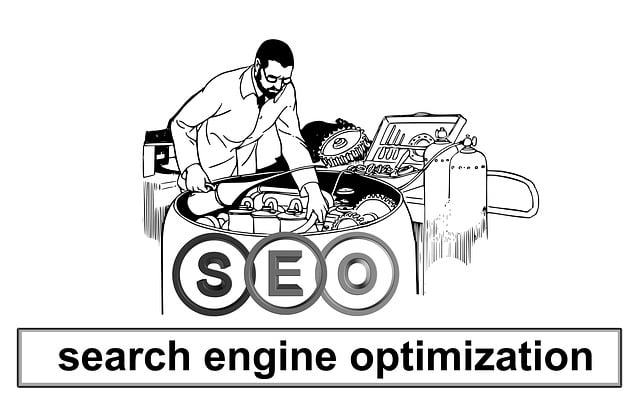By 2025, digital marketers must adapt to evolving search engine algorithms and user intent behind queries, focusing on voice search, semantic searches, and content that answers specific questions. They should leverage data analytics, advanced tools like keyword research platforms, and user experience (UX) optimization for improved SEO rankings. Key strategies include thorough keyword research, engaging content creation, UX enhancements, schema markup, fast loading times, mobile responsiveness, and backlink building, all aimed at driving organic traffic and boosting online visibility. Measuring success involves a holistic approach considering user engagement metrics in addition to traditional keyword rankings.
In the ever-evolving digital landscape of 2025, understanding keyword ranking dynamics is crucial for any business aiming to thrive online. This article explores the strategies and tools essential for navigating the complex world of search engine optimization (SEO). From deciphering dynamic rankings to integrating keywords seamlessly into content, we provide a comprehensive guide on how to improve SEO rankings. We also delve into the impact of user experience and performance evaluation metrics, ensuring you stay ahead in the race for online visibility.
Understanding Keyword Ranking Dynamics in 2025

In 2025, understanding keyword ranking dynamics is more crucial than ever for improving SEO rankings. With the constant evolution of search engine algorithms, what works today might not be effective tomorrow. To stay ahead, digital marketers need to keep pace with these changes and adapt their strategies accordingly. One key aspect is recognizing that user intent has become increasingly complex; search engines must now interpret not just keywords but also the context, sentiment, and user behavior behind each query. This shift demands a deeper understanding of audience needs and preferences.
Additionally, the rise of voice search and AI-powered assistants further complicates keyword ranking. As users interact with technology in more natural language forms, optimizing content for these new search patterns becomes essential. Marketers should focus on long-tail keywords, semantic searches, and creating content that answers specific user questions to enhance their chances of ranking higher. Staying informed about algorithm updates and leveraging data analytics will be vital tools for navigating the dynamic landscape of keyword rankings in 2025.
Tools and Technologies for Accurate Ranking Analysis

With the digital landscape constantly evolving, staying ahead in search engine optimization (SEO) requires access to robust tools and cutting-edge technologies. In 2025, keyword ranking analysis has become more sophisticated, offering a deeper understanding of user intent and search patterns. Advanced algorithms and machine learning models empower marketers and SEO specialists to make data-driven decisions, ensuring their content resonates with the target audience.
These tools provide an accurate picture of where websites stand in terms of specific keywords, helping to identify areas for improvement. From keyword research platforms that uncover hidden gems to analytics suites offering detailed insights into user behavior, each technology plays a crucial role in improving SEO rankings. By leveraging these resources, businesses can refine their strategies, optimize content, and stay competitive in the ever-changing digital realm.
Strategies to Improve SEO Rankings: A Comprehensive Guide

To improve SEO rankings in 2025, a comprehensive strategy is essential. Start by conducting thorough keyword research to identify high-value keywords that align with your target audience’s search intent. Incorporate these keywords naturally into your website’s content, focusing on creating informative and engaging articles that provide real value. Optimize meta tags, including titles and descriptions, to ensure they are compelling and accurately represent the content within. Implement a robust internal linking structure to enhance crawlability and distribute page authority across your site. Additionally, focus on building high-quality backlinks from authoritative sources to signal search engines about your website’s credibility and relevance.
Beyond technical optimizations, prioritize user experience by ensuring fast loading times, mobile responsiveness, and easy navigation. Regularly update content to keep it fresh and relevant, as search engines favor dynamic websites. Utilize schema markup to help search engines understand your content better and consider implementing voice search optimization techniques to cater to the increasing number of voice assistant users. By combining these strategies, you can significantly improve your SEO rankings and drive more organic traffic to your website.
The Role of User Experience in Search Engine Optimization

In the ongoing pursuit to achieve and maintain high keyword rankings in 2025, Search Engine Optimization (SEO) strategies must adapt to evolving user behaviors and search engine algorithms. One key area that deserves significant attention is User Experience (UX). A well-optimized UX can significantly improve SEO rankings by fostering higher engagement and reducing bounce rates. Search engines like Google favor websites that offer seamless navigation, quick loading times, and mobile responsiveness, as these factors reflect a site’s quality and relevance.
Creating an exceptional user experience involves understanding your target audience, designing intuitive interfaces, and implementing best practices for content delivery. By ensuring your website is easy to use, visually appealing, and provides valuable information, you not only enhance the likelihood of users converting into customers or subscribers but also encourage search engines to rank your site higher. Ultimately, prioritizing UX in your SEO strategy will contribute to long-term success in a competitive digital landscape.
Content Creation and Keyword Integration for Maximum Impact

In the ever-evolving digital landscape, content creation is no longer just about crafting compelling copy; it’s an art that seamlessly integrates search engine optimization (SEO) strategies to improve SEO rankings. To stay ahead in 2025, creators must understand the power of keyword integration. This involves strategically placing relevant keywords throughout your content, from headings and subheadings to meta descriptions and image alt tags.
However, it’s crucial to strike a balance. Overstuffing keywords can be detrimental to user experience and may even trigger penalties from search engines. Instead, focus on creating high-quality, engaging content that naturally incorporates keywords, ensuring a smooth reading journey for your audience while boosting your site’s visibility in search results.
Measuring Success: Evaluating SEO Performance in 2025

In 2025, measuring success in SEO isn’t just about looking at keyword rankings; it’s a multifaceted approach that encompasses user experience, engagement metrics, and overall business goals. Traditional metrics like page views and bounce rates will coexist with newer indicators such as session duration, pages per session, and interaction signals from search engines’ advanced analytics tools. By focusing on these comprehensive data points, marketers can gain deeper insights into what truly drives conversions and customer satisfaction.
To improve SEO rankings effectively, digital practitioners must align their strategies with user intent. This involves creating high-quality content that satisfies users’ queries and encourages longer interactions. Signals from core web vitals, like load times, mobile usability, and interactive elements, will continue to carry significant weight in search engine algorithms. Additionally, leveraging structured data markup, optimizing for featured snippets, and building a robust backlink profile will remain essential tactics to enhance visibility and drive organic traffic, ultimately contributing to better SEO performance.
